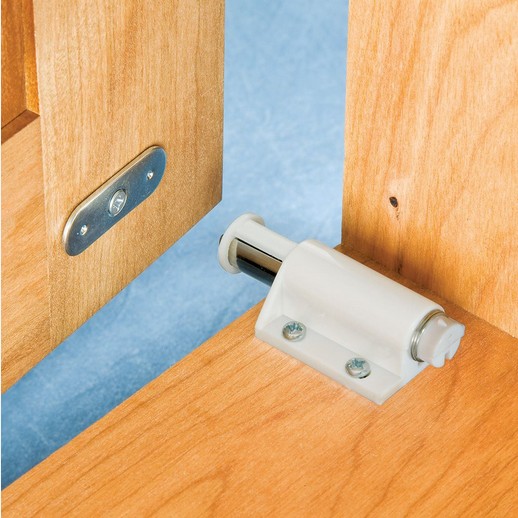Introduction: The Debate Between Magnet Doors and Traditional Locks
The debate between magnet doors and traditional locks has been ongoing for years. While traditional locks have been the go-to option for securing homes and businesses, magnet doors have gained popularity in recent years due to their convenience and ease of use. However, the question remains: which option is better for your home or business? In this article, we will explore the pros and cons of both magnet doors and traditional locks, as well as their security features, convenience, maintenance requirements, cost, and ease of installation.
Understanding Magnet Doors: How Do They Work?
Magnet doors, also known as electromagnetic locks, work by using an electrical current to create a magnetic field that holds the door closed. When the current is turned off, the magnetic field is released, allowing the door to open. There are two types of magnet doors: fail-safe and fail-secure. Fail-safe magnet doors are unlocked when the power goes out, while fail-secure magnet doors remain locked even during a power outage.
Magnet doors are available in a variety of sizes and strengths, making them suitable for a range of applications. They are commonly used in commercial buildings, hospitals, and government facilities, but can also be used in residential settings.
Traditional Locks: The Pros and Cons
Traditional locks have been around for centuries and are still the most common type of lock used in homes and businesses. They come in a variety of styles, including deadbolts, padlocks, and mortise locks. Traditional locks are known for their durability and reliability, and they can be easily replaced if they become damaged or worn.
However, traditional locks also have their drawbacks. They can be picked or bumped by experienced burglars, and keys can be lost or stolen. Additionally, traditional locks require physical keys, which can be inconvenient if you need to give someone access to your home or business while you are away.
Magnet Doors: The Pros and Cons
Magnet doors offer several advantages over traditional locks. They are more secure than traditional locks, as they cannot be picked or bumped. They also offer greater convenience, as they can be easily opened with a key card or fob, eliminating the need for physical keys.
However, magnet doors also have their disadvantages. They require a power source to operate, which means they may not work during a power outage. They are also more expensive than traditional locks, and may require professional installation.
Security: Which Option is Safer?
When it comes to security, magnet doors are generally considered to be safer than traditional locks. They cannot be picked or bumped, and they offer greater control over who has access to your home or business. Additionally, magnet doors can be programmed to automatically lock and unlock at specific times, reducing the risk of unauthorized access.
However, it is important to note that not all magnet doors are created equal. Some are more secure than others, and it is important to choose a high-quality magnet door that is designed to withstand forced entry attempts.
Convenience: Which Option is More User-Friendly?
When it comes to convenience, magnet doors are the clear winner. They can be easily opened with a key card or fob, eliminating the need for physical keys. This is especially useful in commercial settings, where multiple people may need access to the same door.
Traditional locks, on the other hand, require physical keys, which can be lost or stolen. Additionally, if you need to give someone access to your home or business while you are away, you will need to make arrangements to get them a key.
Maintenance: Which Option Requires Less Upkeep?
In terms of maintenance, traditional locks are generally easier to maintain than magnet doors. Traditional locks require little to no maintenance, other than occasional lubrication. Magnet doors, on the other hand, require regular maintenance to ensure they are functioning properly. This includes checking the power supply, cleaning the magnetic contacts, and ensuring the door is properly aligned.
Cost: Which Option is More Affordable?
When it comes to cost, traditional locks are generally more affordable than magnet doors. Traditional locks can be purchased for as little as $10, while magnet doors can cost several hundred dollars. Additionally, magnet doors may require professional installation, which can add to the overall cost.
Installation: Which Option is Easier to Install?
In terms of installation, traditional locks are generally easier to install than magnet doors. Traditional locks can be easily installed by the homeowner, while magnet doors may require professional installation. Additionally, magnet doors require a power source, which may require additional wiring.
Conclusion: Which Option is Better for Your Home or Business?
When it comes to choosing between magnet doors and traditional locks, there is no one-size-fits-all answer. It ultimately depends on your specific needs and preferences. If security is your top priority, a high-quality magnet door may be the best option. If convenience and affordability are more important, a traditional lock may be the way to go.
Ultimately, it is important to consider all of the factors discussed in this article when making your decision. By weighing the pros and cons of each option, you can choose the best lock for your home or business.







